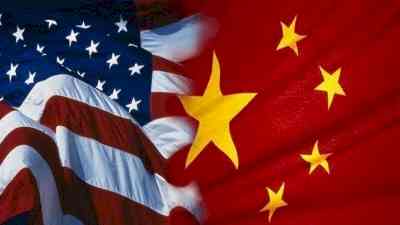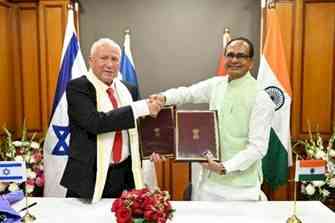India, Japan discuss threat in South China Sea
Amid threat in the Indo-Pacific region, Indian Prime Minister Narendra Modi and his Japanese counterpart Fumio Kishida on Saturday discussed the security challenges in the South China Sea.

New Delhi, March 19 (IANS) Amid threat in the Indo-Pacific region, Indian Prime Minister Narendra Modi and his Japanese counterpart Fumio Kishida on Saturday discussed the security challenges in the South China Sea.
Kishida welcomed the Indo-Pacific Oceans' Initiative (IPOI) announced by Modi in 2019.
The Japanese Prime Minister arrived here on a two-day visit to take part in the 14th India-Japan Annual Summit on Saturday.
Both Prime Ministers acknowledged the growing space for cooperation between the IPOI and Free and Open Indo-Pacific (FOIP). India appreciated Japan's participation as a lead partner on the connectivity pillar of IPOI.
They reiterated their strong support for ASEAN's unity and centrality and their full support for the "ASEAN Outlook on the Indo-Pacific (AOIP)" which upholds the principles such as the rule of law, openness, freedom, transparency and inclusiveness.
The Prime Ministers emphasised that India and Japan, as two leading powers in the Indo-Pacific region, had a shared interest in the safety and security of the maritime domain, freedom of navigation and overflight, unimpeded lawful commerce and peaceful resolution of disputes with full respect for legal and diplomatic processes in accordance with international law.
They reaffirmed their determination to continue prioritizing the role of international law, particularly the United Nations Convention on the Law of the Sea (UNCLOS), and facilitate collaboration, including in maritime security, to meet challenges against the rules-based maritime order in the East and South China Seas.
They emphasized the importance of non-militarisation and self-restraint.
They further called for the full and effective implementation of the Declaration on the Conduct of Parties in the South China Sea and the early conclusion of a substantive and effective Code of Conduct in the South China Sea in accordance with international law, especially UNCLOS, without prejudice to the rights and interests of all nations including those not party to these negotiations.


 IANS
IANS 








